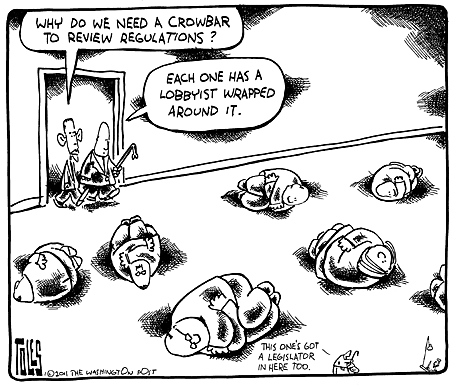John Kelly, who writes a local column for the Washington Post, set out to investigate a century-old milk bottle claiming medicinal qualities and discovered a mid-20th century story of rent-seeking and crony capitalism:
But the big change for Burton-Parsons came in the late 1960s, when it entered the burgeoning soft contact lens market — not the lenses themselves, but the solution used to clean them.
And that’s where things took an interesting turn.
Up until 1974, consumers could purify their contact lenses by boiling them for 10 minutes in distilled water with salt tablets. But that year an Food and Drug Administration microbiologist named Mary Bruch — known as “the first lady of contact lenses” — gained oversight of that product. Bolstered by FDA ophthalmologist Arnauld Scafidi, Bruch started disallowing soft lens manufacturers from utilizing salt tablets, decreeing that consumers risked eye infection.
The only cleaning solution she approved was made by Burton-Parsons, which by then was headquartered in Seat Pleasant, Md., and owned by the Manfuso family, which also owned horse-racing tracks around the state. Its product — Boil-n-Soak — cost four times as much as the simple salt tablets.
It emerged during congressional hearings in 1980 that Bruch and Scafidi had been repeatedly wined and dined by Burton-Parsons executives. The Washington Post’s John F. Berry wrote: “Expense records showed that top executives bought Bruch more than 50 meals at places ranging from Caesars Palace in Las Vegas and Brennans in New Orleans to Maison Blanche and L’Auberge Chez Francois in the Washington area . . . [Bruch] also told the congressional committee that she exchanged vintage wine with one of the Manfusos who shared her interest in fine wine.”
Scafidi was unable to provide research to substantiate his claims that salt tablets were unsafe.
In 1974, Burton-Parsons had annual sales of about $5 million. In 1979, after five years of a near monopoly, it was sold to Alcon Laboratories, a subsidiary of Nestle S.A. of Switzerland, for $110 million, according to industry estimates.
Bruch and Scafidi were investigated by the FBI for the favors they allegedly gave the firm. Scafidi resigned, and Bruch was fired.
More on rent-seeking, crony capitalism, and lobbying regulators.

